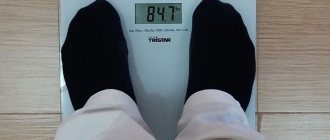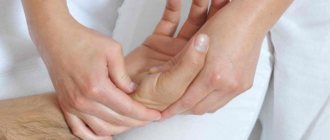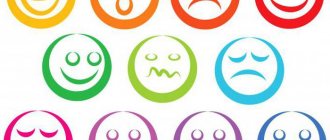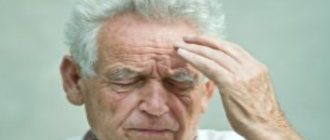New Year's Eve is a very deceptive time. On the one hand, we are all waiting for a miracle, but on the other hand, we understand that some things will remain in the past, and it cannot be corrected or returned. This is where depression can “overwhelm” us, the insidiousness of which lies in the fact that it will do this without warning, leaving us alone with fear and pain.
The head of the GMS Clinic psychogenic disorders clinic, psychiatrist Roman Glebovsky told the online magazine Posta-Magazine about what depression is, how it appears, who is at risk and how to survive this difficult illness.
...Time disappeared, and so did the light. It became dark, empty and scary inside. Desires, needs and meanings - everything disappeared. Just like the colors, the world around me suddenly became equally gray. I wanted to die, nothing more. I still wanted to cry all the time. Just like that, without any reason. My depression lasted for several months, several years have passed since then, and I still remember that period with horror and every time I begin to pray that it will not happen again.
“If previously it was believed that depression was some kind of seasonal changes, now many studies indicate that in large cities with a population of one million people there is no such seasonality. That is, depression can happen to any of us at any moment,” Dr. Glebovsky told me.
I listened and remembered how this happened to me. It was as if I had been turned inside out, deprived of all my desires and values, leaving me without support and protection. The support of friends, the love of loved ones, interesting projects at work - nothing helped. Pain, hopeless melancholy, sadness and a feeling of hopelessness accompanied me everywhere and did not leave me for a minute. I had to seek help from a specialist and start taking antidepressants, otherwise I wouldn’t have made it through - I didn’t have the strength to fight. Antidepressants became best friends for the next couple of years - they helped return the joy hormone serotonin to normal. Which, as it turned out, due to a hormonal imbalance, suddenly stopped being produced in my body.
Types and causes of depression
Depression can be organic, not related to external factors. At some point, the amount of endorphin hormones in the body decreases (serotonin, melatonin, treptophan), and the causes of such depression are most often physiological: age-related and vascular changes or some kind of physical injury.
There are also endogenous depressions, which may be based on stress, a tense family situation, loss, divorce, quarrels, problems at work, or lack of adequate sleep and wakefulness. But it is the correct sleep pattern that provides us with the necessary amount of joy hormones - endorphins, which “protect” from this unpleasant disease.
“If we sleep little and poorly, then the so-called “evil hormones,” destroyers—nurochlamines, nuroadrenalines, adrenalines—increase,” Roman Glebovsky continues the conversation. — Every person has an emotional limit, including a mental limit. There is no onset of depression without signals. There are always some harbingers. They can be different, ranging from a decrease in appetite or changes in taste characteristics, to a decrease in libido in women and potency in men.”
How to avoid falling into “autumn depression”?
The daylight hours are decreasing, the sun is less and less pleasing with its presence, it is raining more and more often, it is getting cold - in a word - autumn. It is in the fall that many people like to mope, fall into a state of “autumn depression.” And if you are one of them and autumn makes you sad and does not evoke any positive emotions, then the situation needs to be corrected urgently! In fact, autumn is a wonderful time, sung by poets more than once. And you just need to put in a little effort and in the “dull time” you will find a lot of interesting and joyful things for yourself.
Have you ever thought that our mood depends not least on what we eat? We have a natural antidepressant in our body - the hormone serotonin, the so-called “hormone of joy”. In order for it to be synthesized, a special essential amino acid is required - tryptophan. Tryptophan is not produced in our body and must therefore be obtained from food. It is precisely due to the fact that this amino acid can increase the amount of serotonin that it is especially important during increased psycho-emotional stress, stress, and is irreplaceable for depressive conditions. In the autumn-winter period, we simply need products that stimulate the production of serotonin.
For complete metabolism of tryptophan, the presence of vitamins C, group B, carbohydrates, as well as magnesium and zinc is also necessary.
Here are the main products that will help you not to lose heart and enjoy life even on gray days.
Dairy
: hard cheese, processed cheese, cottage cheese, yogurt, fermented baked milk, kefir.
Meat
: rabbit, turkey, chicken, beef and veal.
Fish
: salmon, trout, salmon, pollock, mackerel, carp.
Seafood
: black and red caviar, squid, lobster.
Legumes
: beans, peas, soybeans, chickpeas.
Nuts
: peanuts, walnuts, pine nuts, almonds.
Seeds
sesame, flax, pumpkin and sunflower.
Cereals
: oats, buckwheat, brown rice, wheat, barley.
Fruits
: banana, orange, grapefruit, avocado, pomegranate, peach, persimmon.
Vegetables
: tomato, carrots, beets, zucchini.
Green
onions, greens.
Sweets
: halva, dark chocolate.
Let's look at individual representatives of the list of “products of joy”.
Bitter chocolate. Rich in tryptophan, magnesium, pyridoxine and simple carbohydrates, it also contains a substance - phenylethylamine, which promotes the production of happiness hormones - endorphins in the body. This product improves emotional mood, calms and reduces anxiety.
Hard cheese contains B vitamins, polyunsaturated fatty acids, the essential amino acid tryptophan and a small amount of phenylethylamine. All these substances are necessary for a good mood and proper brain function.
Tomatoes contain lycopene, which is a powerful antioxidant that regulates metabolic processes in the brain, which helps cope with depression. In addition, tomatoes contain other “mood enhancers”, such as folic acid and magnesium, as well as iron and vitamin B6.
So, increasing the level of tryptophan in the body by including foods rich in this substance in the diet enhances the natural production of serotonin, which in turn improves a person’s mood, regulates his appetite, allows him to relax, and also normalizes sleep.
However, you should not get carried away with “products of joy”. As you may have noticed, most of the listed products are high-calorie. Their daily consumption in large quantities can negatively affect not only your figure, but also your health. It is enough to include at least one product from each category in your daily menu, and you will feel more cheerful and cheerful even in the most depressing weather.
It is worth mentioning the false “joy foods”, which include: caffeine, alcohol, confectionery and drinks with a high sugar content. The peculiarity of these products is their ability to dramatically increase serotonin levels. But this increase is short-lived, the level of serotonin drops very quickly, and then our mood. Alcohol improves your mood only in the first few minutes; the next day you will be even more depressed.
If you are used to eating stress and melancholy, be careful about what you eat. You shouldn’t put anything in your mouth; your snacks should be healthy and fill you with “happiness hormones.”
And finally, a few more tips to help you cope with a bad mood.
Give your body physical activity. Lack of activity after summer is one of the reasons for the autumn blues. Scientists have long proven that physical activity promotes the release of endorphins. There is no time for the gym - do exercises at home, dance to your favorite music, if possible, walk to work and back.
Pleasant smells will help lift your mood. The best aromatic oils for this are orange, grapefruit, geranium and lavender. They can be added to the bath, diluted in water and sprinkled around the room, or you can use an aroma lamp.
In the morning, a contrast shower will help you cheer up and tone your body.
Take advantage of color therapy - add bright colors to your wardrobe. If you prefer dark colors in clothes, use bright accessories.
And under no circumstances should you succumb to laziness, hide under a blanket, or sit in front of the TV all evening long.
Walk more, meet friends, attend exhibitions and performances, plan a vacation for next summer. In general, a little effort, and the autumn blues will bypass you. Share on social media networks
Symptoms of depression
A person is designed in such a way that he rarely pays attention to the signs, to what the harbingers of the disease are trying to “tell” him. It can last a month or a little more, and then the pain just bursts out, and with it what you have been holding back for so long and trying not to notice.
“A depressed person is immediately visible: tired skin, lifeless, empty eyes, decreased performance, conversations about how everything is bad, that he is tired, that he can’t do anything, that nothing is needed, that nothing is interesting. A person loses interest in life, it’s as if a cell is growing around him, beyond which he does not want to go,” says the doctor.
If you do not provide timely help to a person suffering from depression, a funnel of pain can drag him to the very bottom. Psychologists call this state “winter of the soul,” when positive feelings and emotions seem to freeze and you become deaf to the outside world. But this is not the end of life, it's just winter. It’s as if she’s testing the strength of her desire to live.
“The most difficult thing is going to grandma’s”
I’m eight years old, and I’ve been crying over a plate of dumplings for two hours now.
I'd rather die than eat them. I hate to even look. Sometimes tears fall straight into the film-covered cold broth, and this makes it even more disgusting: it seems as if there is some kind of connection between my body and the minced meat peeking out from under the dough. My parents still think that I’m just too picky about food. Their favorite phrase: “If there was nothing to eat, I would immediately change my mind.” For a long time they believed that I would “outgrow my whims.” But I haven't outgrown it.
I am now thirty and have Avoidant/Restrictive Food Intake Disorder (ARFID). I don't eat mixed. At all. I have never tried your usual salads, soups, pizza, sushi, burgers... This list can be listed endlessly, it’s easier to name what I can eat: rice, buckwheat, potatoes, poultry, nuts, fruits, some vegetables, sweets and some types of snacks. Everything is separate and it is advisable that the products in the plate do not come into contact with each other.
The most difficult thing for me is going to grandma’s house, having dinner with relatives or having dinner with a large company. There will always be a person enthusiastically thrusting a vinaigrette or roll under my nose: “This is very tasty, try at least a drop!” If my refusal is accepted the first time, luck is on my side. But more often than not, “no” only inflames the advisers, and then the whole week is ruined. At home I will definitely cry with disgust, and the memory will haunt me for several more days.
Anna Chernigova, psychotherapist
I was diagnosed a couple of years ago, but it didn’t come to therapy. I’m afraid of the result: I immediately imagine myself scooping Olivier out of the pan with a ladle without the slightest disgust, and I can barely restrain the urge to vomit.
“A person does not refuse to eat, he wants to eat under certain conditions. Such symptoms may be associated with a feeling of internal insecurity. This kind of ordering gives a person a sense of security, helps to cope with anxiety, the fear of experiencing emotions that will frustrate him,” explains psychotherapist Anna Chernigova.
How to help a depressed person
But without winter there is no spring, and every test is given to a person so that he becomes stronger and wiser, so that he feels the taste of life and appreciates it. But in moments of depression, it is extremely important that loved ones do not give up, that they react, sympathize, provide help and support.
“I first try to work with depressed and anxious-depressive patients through psychotherapy. I try to find reserves in the person himself, in the family, in changing the circle of friends and redirecting thoughts, to give him something new. Ignite an inner fire in the patient that will help him live and move on. Because neither you, nor me, nor anyone can live without this fire,” shares Roman Vladimirovich.
If a person close to you does not want to see a specialist, but you still see symptoms of depression, try to help him using simple methods. Spend more time in the fresh air, go horseback riding or to the dolphinarium, go on a trip, drink wine, go to the movies. Try to get him to eat more sweets - this promotes the production of endorphins. But if all this does not help, you should definitely contact a psychotherapist.
“Two fingers in the mouth has become commonplace”
Anna P.'s first episode of bulimia occurred at the age of 15.
“I have such a body constitution that even if I weigh very little, I don’t look thin. When I was a teenager, I hated myself for it. I read on some forum about “two fingers in the mouth” (artificial induction of vomiting. - Ed.). I understood that this was not normal, but I wanted to lose weight more. It probably seemed to me that I wouldn’t sit down and would be able to stop in time,” shares Anna.
By the age of 17, she was feverishly counting calories: before eating or drinking something, the girl compared how much “fat” the snack would bring her.
“Two fingers in the mouth” had become commonplace by that time. You are always on water and lettuce leaves, roughly speaking, and then you see a cake. And as they say: spark, storm, madness. You find yourself eating this cake with a soup spoon in your hands. At such moments you feel hatred towards yourself, it seems to you that years of effort have gone down the drain. And you go vomit, it seems like the only way out,” she recalls.
Anna's mother sounded the alarm when she learned that she was not getting her period. This happened after an appointment with a gynecologist.
“She screamed that I was a fool and would lead myself to the grave. I cried. Now I understand what she was probably worried about, but at that moment I thought that even my periods were a public property. They dragged me to the doctor, he diagnosed “anorexia,” the girl falls silent.
A couple of months after that quarrel, Anna turned 18 and moved out: her father agreed to pay for the housing on the condition that the girl continue the therapy she had started.
Now Anna is 22, she is still trying to come to terms with her body.
Collage: Anna Lukyanova
“I try not to look at my friends’ photo shoots, not to subscribe to celebrities’ Instagrams and anything like that. I'm afraid to see myself as less than ideal again. Well, that is, I know that I’m not perfect, but when people around me are too, it’s somehow easier,” she admits.
The girl tries to eat three times a day and has even learned to please herself with cakes without feeling guilty.
“Not in boxes, of course, but I no longer hate myself for some “basket” or pie,” she explains.
“If we talk in general about such cases, then the first thing that needs to be dealt with is contact with a significant object, we are talking about the mother. The second is suppressed aggression and the impossibility of separation. The third is insufficient intrinsic value. As a rule, girls who suffer from anorexia have a mother who tries to control everything or strongly invades personal space. And to put it in a very exaggerated way, in order to gain autonomy, the girl refuses food and life. This is a method of separation,” explains psychotherapist Anna Chernigova.
Remission
The human psyche has an amazing property - it can self-heal as long as the body lives and breathes. With the right approach and treatment for depression, you can quickly learn to live and breathe again. At first hesitantly, then more and more confidently. Then the understanding will come that the “winter of the soul” was needed in order to bring spring and summer back into life, learn to listen to your heart, love simple things, smile at the sun and every new day, enjoy food and communication with your loved ones. Enjoy the little things that you simply didn’t have time for before. Love life in all its manifestations.
Source: posta-magazine.ru
"To Stop Others"
If you enter the abbreviation RPP in the search engine of any social network, you can see thematic communities of different directions in the search results. For example, in the “brain disorder” group, they more often post supposedly humorous content; there is a warning in the header - they do not promote eating disorders and do not insult anyone. In the public you can find local memes like the caption “aquadisco” under a photo of the drug “Furosemide” - it removes excess fluid from the body. In the comments, some participants share their experience: it is better not to use it for weight loss; kilograms lost due to dehydration quickly return. Others are interested in where and how to buy.
There is no disclaimer in the VK group “Typical Anorexic”. Mostly teenage girls and young girls post here photos of the results of their diet and ask for advice on how to lose weight faster and more effectively. In the community you can find statements like “Fat is an indicator of your unhappiness.” Under the posts of the thinnest girls, peers write: “You are my motivation.”
However, on the Internet you can also find communities of support for “victims” of eating disorder. For example, “RPP in consequences.” The group's header briefly explains that eating disorders lead to death. On the wall is a message from a girl who is struggling with the disease and has been in remission for two years - she tells how she embarked on the path to recovery.
Collage: Anna Lukyanova
“For those still on the road, know that anything is possible,” the post reads.
According to one of the group members, “the local contingent has already realized what terrible consequences happen after eating disorder.”
“First you kill yourself, and then you talk about it to stop others,” is how she described the group.
In the public, participants share stories: some want to warn their friends in misfortune, others ask how they can deal with the disease.
There is also a community site called Compulsive Overeaters Anonymous - the site states that you can seek help with any eating disorder.
“We work according to the 12 Step program, the exact instructions of which are described in the book Alcoholics Anonymous,” the home page explains.
The community holds meetings and lectures on Skype and Instagram, as well as in-person meetings. On the latest social network you can find the freehelp_center account, which positions itself as a help center for eating disorders.
Signs, manifestations, symptoms of depression
Signs of the disease can be divided into four groups.
- emotional disturbances: decreased mood, lack of ability to worry,
- disturbances of mental functions: slowing down of the pace of thinking, impaired attention,
- a feeling of insignificance, uselessness, ideas of self-blame, gloomy and negative thoughts about the meaninglessness of life, a pessimistic interpretation of the past, present and future, which can lead to suicidal attempts;
- decreased motor activity and behavioral disturbances: decreased performance, passivity, refusal to communicate, reclusiveness;
- physiological manifestations: eating disorders (usually loss of appetite), intestinal dysfunction, constipation, loss of libido;
Symptoms
The first thing that catches your eye when talking with a person who is depressed is joylessness and pronounced depression. Melancholy and anxiety can be read on the patient’s face. In this state, people feel abandoned and forgotten, it seems to them that friends and relatives have turned their backs, and the world around them wants to get rid of their presence as quickly as possible. When talking with such patients, you can find that they most often complain about:
- A sharply decreased appetite or a complete loss of interest in food (although with the so-called “atypical depression”, on the contrary, the appetite increases and there is a craving for sweet, starchy, and sometimes fatty foods - the person “eats” depression and can gain several kilograms in a relatively short period of time) .
- Having problems sleeping. Constantly haunted by nightmares, night's sleep becomes superficial and light, not bringing a sense of rest. In order to fall asleep, you need to take strong medications. After waking up, such people do not feel relief; fatigue does not leave them.
- The feeling of joy goes away. Even ordinary physiological pleasures become inaccessible.
- Interest in the events happening around is lost, even if they directly concern the person.
- Loss of strength is expressed in the reluctance to do the usual work. A little tension causes an attack of mortal fatigue.
- It is difficult to concentrate on simple life situations.
- Symptoms are often expressed in absolute helplessness and a feeling of uselessness to loved ones.
- A painful feeling of guilt that arises for any reason (or “the beginning of a feeling of guilt” - the feeling “I’m disturbing everyone,” “it would be better without me”) is a very dangerous symptom from the point of view of the risk of a suicide attempt.











